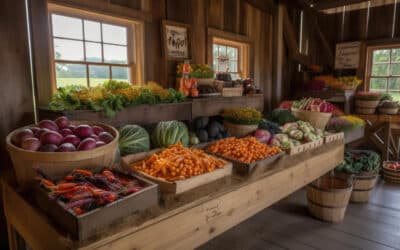The agriculture sector is facing a period of transition that will significantly change the way the industry operates. Rural businesses will need to find and generate new income streams as new opportunities present themselves. However, with these new opportunities comes new challenges as the agriculture sector faces increasing demand to reduce its carbon footprint whilst inflationary pressures are making everyday business more challenging.
In this article, we will be discussing some of the key changes that will affect farmers in 2022 and beyond.
Reductions in Basic Payment Scheme (BPS)
The BPS is the largest rural government grant and payment available to the farming industry but is set to end in 2028 with significant reductions year on year in the intervening period. Farmers can apply for this grant each year and will need to comply with some rules in order to receive the grant. This reduction is likely to create a financial shortfall for many farmers across the UK that will need to be addressed. Small increases in productivity will only be part of the answer for most farmers as different opportunities will need to be considered moving forward.
Defra introducing complicated new schemes
Defra has created a new domestic agricultural policy. This policy comes with the introduction of very complicated new schemes which farmers will need to quickly adapt to in order to benefit from them. However, we are currently in a transition phase where new schemes are being introduced and old schemes are being phased out, making it more complicated than ever.
One of the new schemes introduced by Defra across England is the Sustainable Farming Incentive (SFI) which will be available from Spring 2022. The ultimate aim of this scheme is to have 70% of farms and farmland across England to be part of the SFI by 2028. However, doubts have been cast about whether the schemes payments are lucrative enough to incentivise farmers to sign up.
Lump-Sum exit scheme and delinking
For those who are considering leaving their farm, Defra has announced a lump sum exit scheme. This scheme is designed to free up land for those wishing to pursue farming and existing farmers wanting to expand. The scheme offers a one-off lump sum for those looking to leave farming. Whilst the amount is most likely not enough to persuade farmers to leave, it may be suitable for those already considering an exit.
Environmental protection
The Environmental Act has now been passed by UK law. This act has been introduced to enhance the natural world for future generations. Lots of work still needs doing on the act but there is no doubt that significant changes will be on the way regarding the way farmers store and spread manure, slurry, AD digestate, or sewage sludge. Defra is also keen to set long-term legal binding rules on air quality, biodiversity, water, resource efficiency, and waste reduction.
Carbon management and trading
This is an exciting opportunity for farmers, and carbon trading has become a bit of buzz word recently. This is because you can now trade carbon credits generated from woodland, peatland and soil. However, there is still significant uncertainty about how carbon trading will work and where prices will settle. They also need to consider how much carbon their business is emitting. Once you have this knowledge you can calculate if you have any surplus that you can sell to third parties that do not affect their position from a financial, environmental, and reputational point of view.
ESG investing
The agriculture sector is being affected by the focus on Environmental, and Social Governance (ESG) considerations. Over the past few year’s businesses have started to put more emphasis on ESG and Corporate Social Responsibility in an effort to reduce their carbon emissions. This trend is having an effect on the agriculture sector as many businesses look to plant trees, get involved with rewilding and deliver other ecosystem services.
This presents an opportunity for farmers generate income streams from this increase in corporate businesses taking part in ESG investing. However, this does also come with a challenge as farmers have been vocal about losing productive farmland could impact food security.
How can we help?
Hawsons has a dedicated team of specialist agriculture accountants in Sheffield, Doncaster and Northampton. We know that farming isn’t just a business; it’s a way of life.
The rural and agriculture sector is a specialist sector, with unique practices and conventions, and we act for a significant number of arable farms and assist farming families in many matters specific to the sector including tax and will planning and succession planning.
We have been able to assist our farming clients in adding value to their businesses including advising on the financial and taxation consequences of property development, green technologies and capital allowance planning. In particular, we can assist in the area of capital taxes planning which is a significant issue for most farmers following the increase in land values and the availability of development opportunities.
Free initial meeting

Dan Wood
Partner, Doncaster
Related content
Tax Implications of Farm Diversification
Farmers are increasingly seeking ways to stabilise their farm income and ensure the sustainability of their agricultural businesses. Farm diverification is one strategy farmers are using to achieve this. Diversifying a farming business involves branching out into new...
Succession Planning for Farms
Have you thought about succession and the long-term plans for your family farm? As agriculture makes up the highest concentration of family businesses passed through the generations, it is no surprise that succession is a key issue and is something farmers need to...
Agricultural Property Relief – Changes Ahead
Government initiatives often shape the landscape of various sectors, and agriculture is no exception. Recent developments in the UK's environmental policies are set to bring significant changes to agricultural property relief (APR). Background In 2023, the UK...




